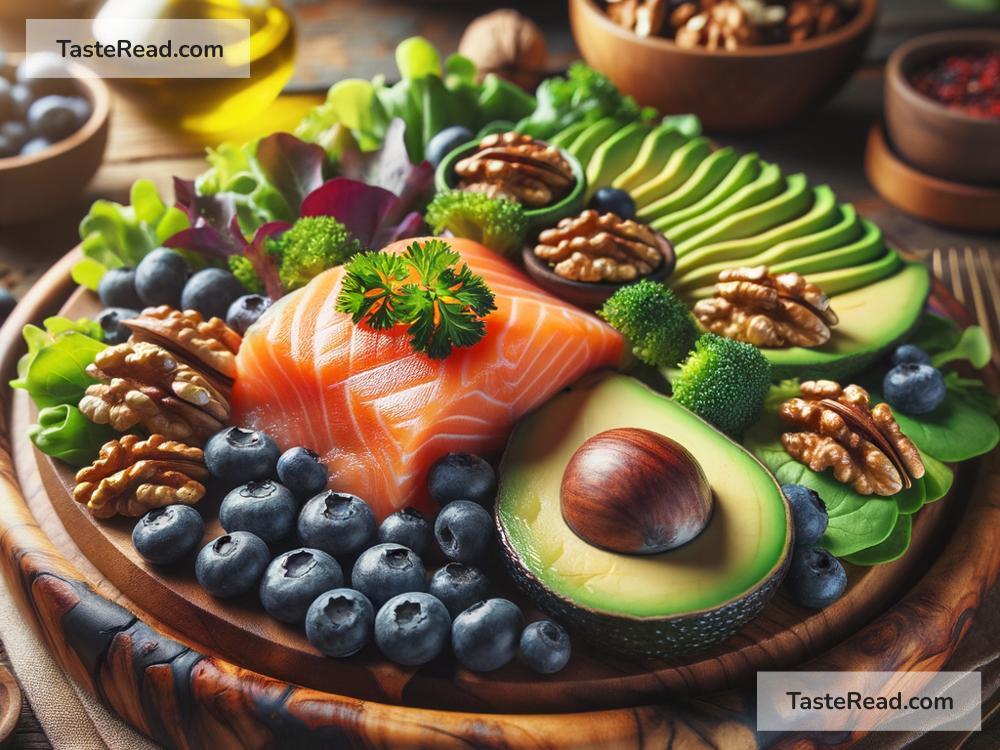Foods for Depression Management: How Your Diet Can Help Improve Your Mood
Depression is a common mental health condition that affects millions of people all over the world. It’s more than just feeling sad or down—it can make daily life hard to manage and leave you feeling tired, hopeless, or stuck. Along with therapy, medication, and lifestyle changes, what you eat can play a role in managing symptoms of depression. Research shows that certain foods can help improve mood and boost brain health. Today, we’ll talk about foods that can support mental wellness in simple and easy-to-understand terms.
Why Food Matters for Mental Health
Your brain is like a machine, and it needs fuel to work properly. That fuel comes from the foods you eat. Eating a balanced diet gives your brain the nutrients it needs to produce mood-regulating chemicals like serotonin and dopamine. These chemicals help you feel happy, calm, and focused. On the other hand, eating too much junk food or sugar can lead to crashes in energy and mood, making symptoms of depression worse.
A diet full of fresh, nutrient-rich foods doesn’t cure depression, but it can help your body and brain feel stronger and more balanced, making it easier to handle difficult emotions. Let’s explore some of the best foods for depression management.
1. Omega-3 Fatty Acids: Healthy Fats for a Healthy Brain
Omega-3 fatty acids are special fats that play a big role in keeping your brain healthy. They help build brain cells and support communication between those cells. People who don’t get enough omega-3s may be more likely to experience mood swings and feelings of sadness.
Where to find them:
– Fatty fish like salmon, mackerel, and sardines
– Walnuts
– Chia seeds and flaxseeds
– Fortified eggs
If you don’t like seafood, seeds and nuts are a great plant-based alternative. Adding a handful of walnuts to your breakfast or sprinkling chia seeds on your yogurt can provide a boost of healthy fats.
2. Whole Grains: Steady Energy for Your Mind
Whole grains provide slow-releasing energy, keeping your blood sugar stable throughout the day. When blood sugar jumps and crashes, it can leave you feeling tired and irritable. Whole grains also contain B vitamins, which can help reduce stress and stabilize mood.
Where to find them:
– Brown rice
– Quinoa
– Oats
– Whole-wheat bread or pasta
Try swapping out white bread or white rice for whole-grain alternatives. A bowl of oatmeal in the morning with some fresh fruit is a simple way to start your day with mood-friendly fuel.
3. Leafy Greens: Nutrient Powerhouses
Leafy greens like spinach, kale, and Swiss chard are loaded with antioxidants and nutrients, including folate. Studies have shown that people who don’t get enough folate may be at a higher risk of experiencing depression. Leafy greens also help fight inflammation, which can affect brain health over time.
Where to find them:
– Spinach
– Kale
– Romaine lettuce
– Broccoli
– Swiss chard
If you don’t enjoy salads, try blending leafy greens into smoothies or adding them to soups. They’re easy to sneak into meals without changing the taste too much.
4. Fermented Foods: Gut Health for Better Mood
You might be surprised to learn this, but the health of your gut can impact your mental health. Your gut is home to trillions of bacteria that affect the production of mood-related chemicals like serotonin. Eating fermented foods can promote good bacteria in your gut, improving digestion and, potentially, your mood.
Where to find them:
– Yogurt (with live cultures)
– Kefir
– Kimchi
– Sauerkraut
– Miso
Start small if you’re new to fermented foods—a few spoonfuls of yogurt or a side of sauerkraut with your meal is a great way to begin.
5. Nuts and Seeds: Snack Smart for Brain Health
Nuts and seeds are packed with healthy fats, vitamin E, and magnesium—all nutrients linked to brain health and mood improvement. They’re portable and easy to snack on, making them an ideal food for busy days when you need a quick energy boost.
Where to find them:
– Almonds
– Cashews
– Sunflower seeds
– Pumpkin seeds
– Walnuts
A handful of nuts or seeds in the afternoon can help keep you focused and feeling steady until your next meal.
6. Dark Chocolate: A Sweet Treat for Your Mood
If you’re looking for something sweet, reach for dark chocolate instead of sugary candy. Dark chocolate contains compounds that boost serotonin levels and promote feelings of relaxation. It’s also rich in antioxidants, which protect your brain from stress.
Where to find it:
– Dark chocolate with at least 70% cocoa content
Remember to enjoy it in moderation—just one to two squares can be enough to give your mood a lift.
Other Helpful Tips
While food can support depression management, it’s important to create a balanced diet rather than focusing on one or two “magical” foods. Drink plenty of water, avoid excessive caffeine and alcohol, and try cooking fresh meals at home whenever you can. Don’t skip meals—eating regularly keeps your energy steady and supports emotional stability.
Final Thoughts
Depression is complex, and recovery often takes time and effort in many areas of life. Eating nutritious foods is one way to support your mental health and give your brain the tools it needs to function at its best. By including omega-3-rich fish, whole grains, leafy greens, fermented foods, nuts, and even a little dark chocolate in your meals, you can work toward feeling better from the inside out.
If you’re struggling with depression, remember that help is available. Talk to a doctor or therapist about your feelings, and consider speaking to a dietitian if you need help planning meals that are good for your mental health. You deserve to feel well, and small changes—like a healthier diet—can make a big difference over time.


